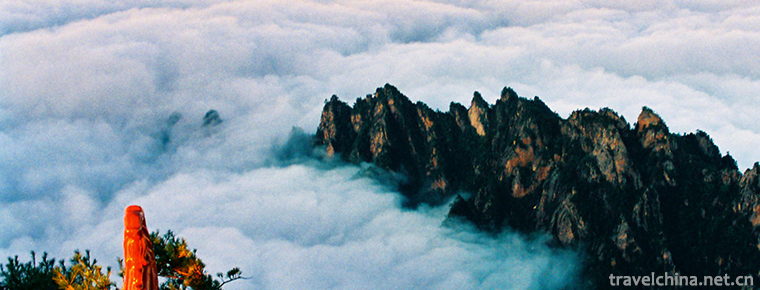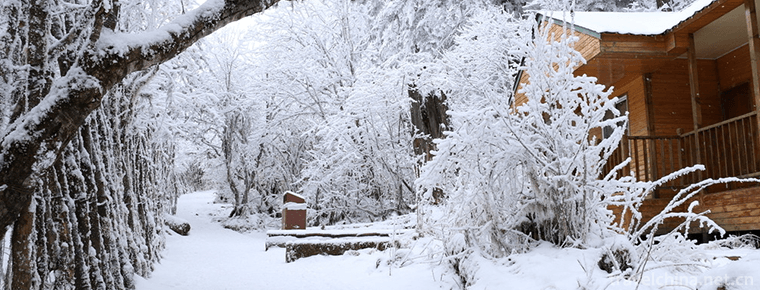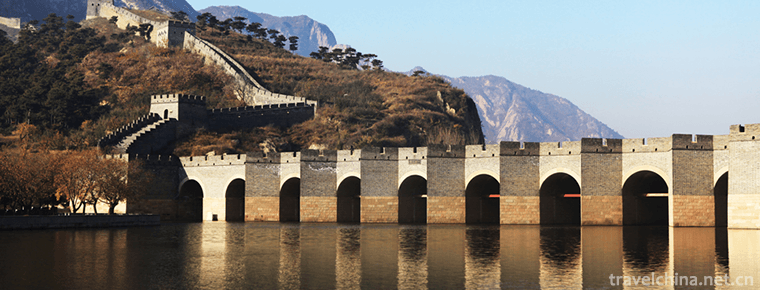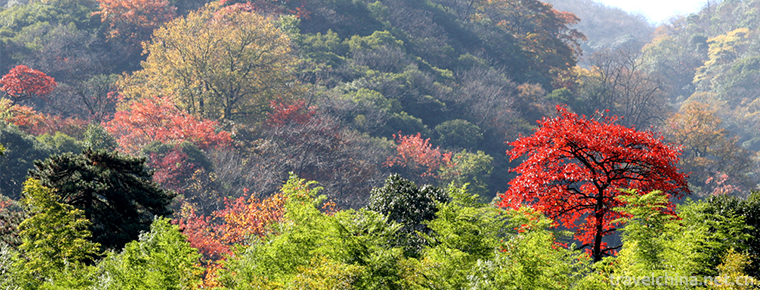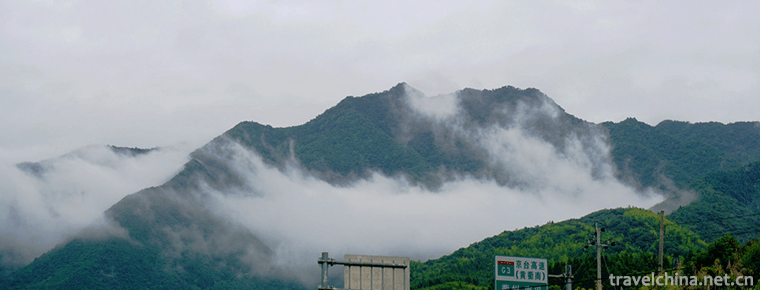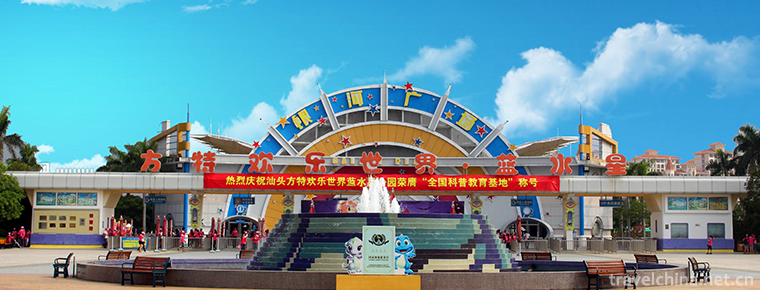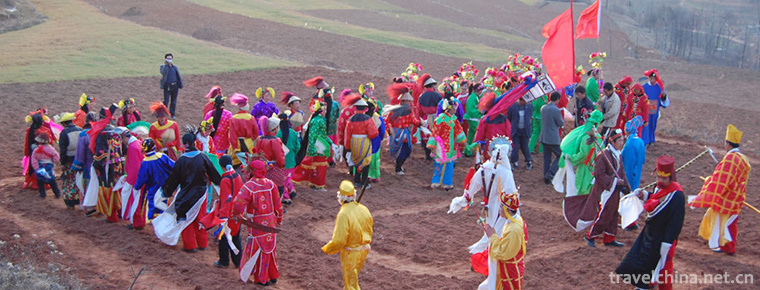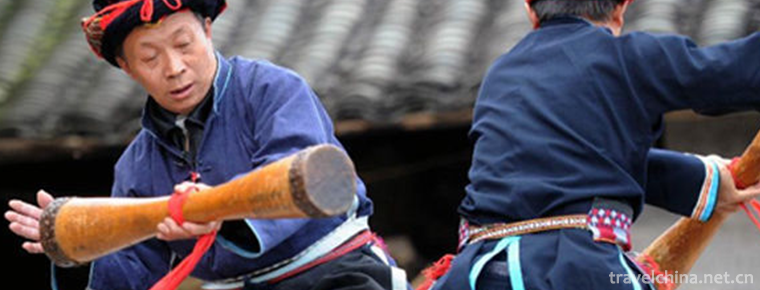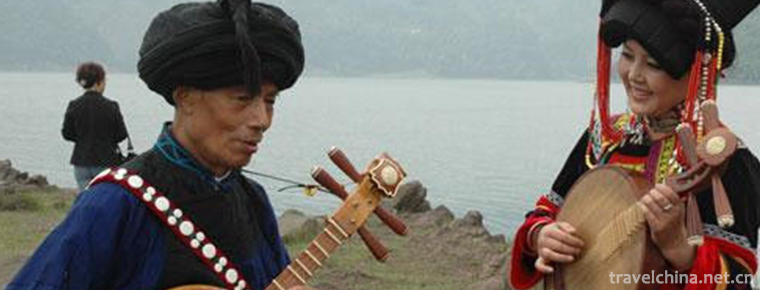Legend of Liu Ruan
Legend of Liu Ruan
The legend of Liu Ruan, also known as the story of Liu Ruan's encounter with immortals, is spread in Shangxian (now Xinchang, Shengzhou) and Tiantai. It is a mythological love story that takes Liu Ruan and his wife as the main content when they come to Tiantai Mountain to collect medicines and meet immortals. Originated in the Eastern Han Dynasty, since Jin Dynasty, scholars of all dynasties have written a large number of famous articles on this subject. Among them, there are six dynasties notebook novels, Tang poetry, Song Ci, Yuanqu, Ming and Qing legends, novels, poems and essays, and their influence is widespread at home and abroad.
This legend has been announced as the fourth batch of intangible cultural heritage projects in Zhejiang Province by the provincial people's government in July 2012, which belongs to the category of folk literature in the intangible cultural heritage projects.
On November 11, 2014, Liu Ruan Legend was approved by the State Council to be listed in the fourth batch of representative projects of national intangible cultural heritage.
Historical origin
Liu Ruan's legends originated from the mysterious stories of the Six Dynasties, such as Jin Ganbao's Sou Shen Ji, Tao Yuanming's Sou Shen Suo Ji, Yong Ming Lu of Southern Song Dynasty Liu Yiqing, Liang Wujun's Reading Qi Xie Ji and so on.
Legends
Legend
Liu Ruan's legend took place in Yongping in the Eastern Han Dynasty (AD 62). It has a history of 1947 and has been circulated in Chengxian (including Xinchang and Shengzhou) and Tiantai. It is said that Liu Chen and Ruan Zhao went to Tiantai to collect medicines. The mountains are high and the roads are long. It is difficult for them to go home for a while. After 13 days in the campsite, when hungry, they picked peaches from the mountains and drank spring water when thirsty. On the way down the mountain, I saw two beautiful girls beside the stream. When I saw Liu Ruan and Liu Ruan holding cups for drinking mountain water, I greeted them with a smile and called Liu Chen and Ruan Zhao their names directly. Liu and Ruan were shocked. How could the two girls who had never met him name them? As if they had known each other before, they asked them, "Why is it too late?" Later, Liu and Ruan went home with the two girls because of their warm invitation. When they arrived at the girl's house, Liu and Ruan found that their families had their own silk tents in the South and East walls, and their tent horns were hanging bells with gold and silver interlaced. Several maidservants served them respectively. They also served them with flax rice, preserved goats, beef and other delicacies. Obviously, it's the rich people who eat the perfect food and drink the good wine. And the maid took the peach in her hand and laughed and said, "He Ru Son-in-law is here! Drink and play. In this way, after 10 days of immortal life, Liu and Ruan proposed to resign and want to go home. As a result, he was left for half a year. Half a year later, spring blossoms, birds singing, homesickness is stronger. The hostess was also considerate, pointing out the way home and sending them home. When I returned home, I found that the people were different, the villages were scattered, and the descendants had passed seven generations. Later, she returned to Tiantai Mountains to visit her daughter. As a result, she left a thousand years of melancholy and turned it into a melancholy stream.
textual research
The legend of Liu Ruan is said to have occurred in Liumen Mountain in Xinchang, which has been confirmed by many scholars.
Back to the "melancholy stream" and up, through Taoshu dock, through the "Yingxian Bridge" (provincial key cultural relics protection units), along the ancient post road to Liumenwu. Dock in the shade, there are Ruan Gong Tan, Ying Xian Pavilion (now abandoned), along the path of Liu and Ruan Zhi to the Liumen Mountain, there are descendants to commemorate Liu Ruan's encounter fairy "Liu Ruan Temple" (that is, the "Liu Ruan Temple" recorded in "Jiatai Hui Ji Zhi"), which has been destroyed repeatedly for nearly a thousand years, and has survived so far. From the temple of Liu Ruan to Fengxiangling, climbing up to the cave of fairies (where Liu Ruan and fairies live), beside which are the relics of Liu, Ruan and fairies.

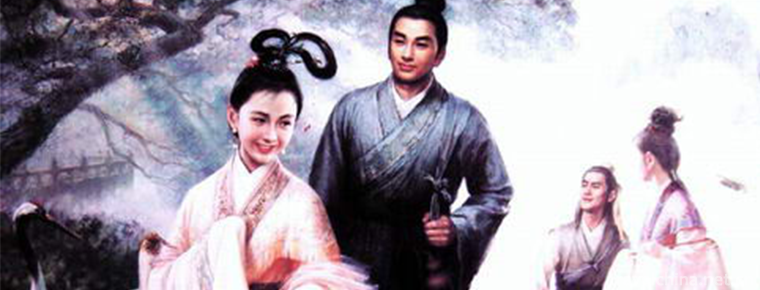
-
Old boundary ridge of Funiu Mountain
Laojieling is located in the north of Xixia County, Nanyang City, Henan Province. It is located in the upper part of the south slope of Funiu Mountain.
Views: 131 Time 2018-12-09 -
Conch Valley Scenic Area
Hailuogou is located in Moxi Town, Luding County, Sichuan Province, on the eastern slope of Gongga Mountain. It is a very high mountain area on the eastern edge of the Qinghai-Tibet Plateau.
Views: 183 Time 2018-12-12 -
Yunwushan Scenic Area
Yunwushan Scenic Spot is located in Paulownia Shop in the northwest of Huangpi District. It enjoys the reputation of "Xiling Resort Area, North Chu Famous Area, Beixi Border Barrier and Handizush.
Views: 182 Time 2018-12-22 -
Jianglangshan 28du Tourist Area
28du Town, located in Jiangshan, Zhejiang Province, is a famous historical and cultural town. It is a writer's creation base in Zhejiang Province. It is located at the junction of Zhejiang,.
Views: 192 Time 2019-01-21 -
Shantou Fangte Happy World Blue Mercury Theme Park
Shantou Fangte Happy World Blue Mercury Theme Park is the first participatory high-tech theme park in eastern Guangdong with science fiction as its theme, integrating entertainment,.
Views: 209 Time 2019-02-08 -
Shibing Karst
Karst is karst. It is the general name of the geological function of water in dissolving rock (carbonate rock, gypsum, rock salt, etc.) mainly by chemical dissolution.
Views: 225 Time 2019-02-08 -
Wudu Alpine Opera
Wudu Alpine Opera, also known as Alpine Opera, is one of the two unique local operas in Gansu Province. In 2008, Wudu Alpine Opera was selected as the second batch of national intangible cultural heri.
Views: 168 Time 2019-06-30 -
Long Drum Dance of Yao Nationality
Chinese Yao folk dance. Popular in Guangdong, Guangxi, Hunan and other provinces where Yao people live together, most of them perform on traditional Yao festivals, harvest celebrations, relocation or .
Views: 209 Time 2019-07-11 -
Yi Folk Songs
Yi folk song is an important carrier of Yi culture and one of the most important forms of inheriting Yi culture. It records the history, science, production and life, traditional customs, philosophy, .
Views: 214 Time 2019-07-12 -
Mineral resources in Suining
The mineral resources with more reserves in Suining City mainly include oil, natural gas, well salt, placer gold, limestone, etc., especially natural gas and brine resources. Suining has developed and utilized 7 kinds of mineral resources, including shale mine.
Views: 195 Time 2020-12-16 -
Dazhou social security
In 2019, the per capita disposable income of Dazhou residents is 22995 yuan, an increase of 10.1%. The per capita disposable income of urban residents was 33823 yuan, an increase of 9.5%. Among them, salary income was 18783 yuan, an increa.
Views: 105 Time 2020-12-20
